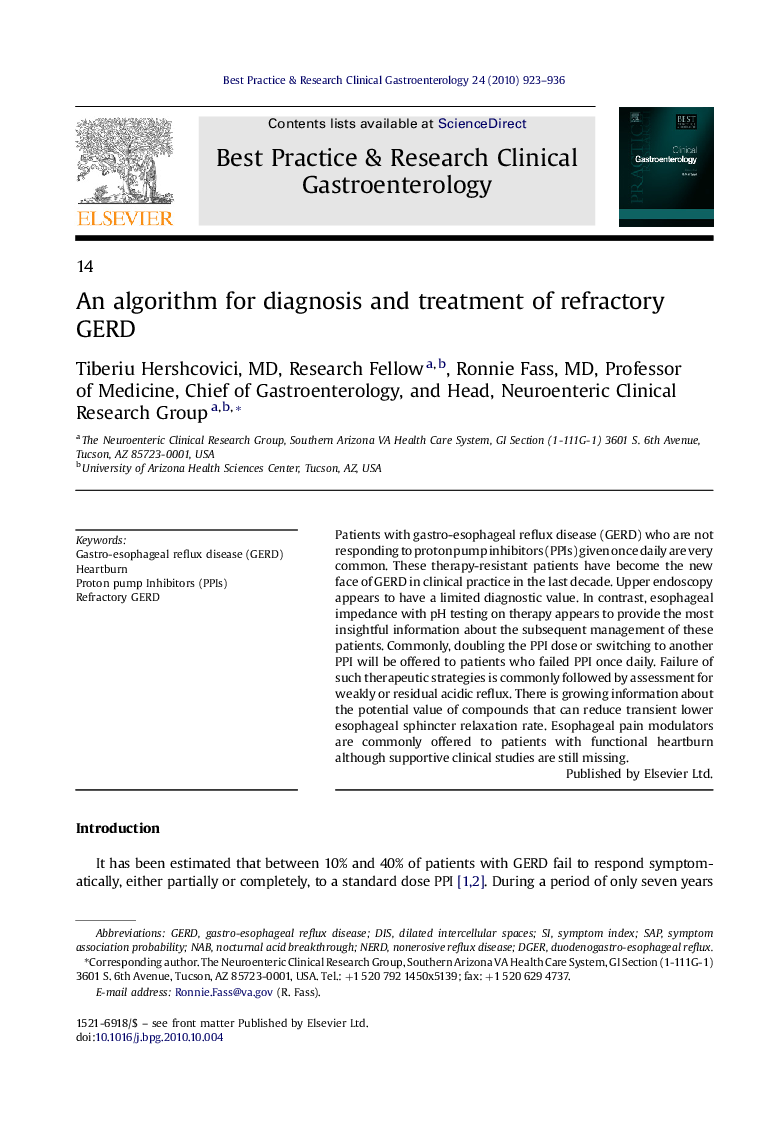| Article ID | Journal | Published Year | Pages | File Type |
|---|---|---|---|---|
| 3254384 | Best Practice & Research Clinical Gastroenterology | 2010 | 14 Pages |
Patients with gastro-esophageal reflux disease (GERD) who are not responding to proton pump inhibitors (PPIs) given once daily are very common. These therapy-resistant patients have become the new face of GERD in clinical practice in the last decade. Upper endoscopy appears to have a limited diagnostic value. In contrast, esophageal impedance with pH testing on therapy appears to provide the most insightful information about the subsequent management of these patients. Commonly, doubling the PPI dose or switching to another PPI will be offered to patients who failed PPI once daily. Failure of such therapeutic strategies is commonly followed by assessment for weakly or residual acidic reflux. There is growing information about the potential value of compounds that can reduce transient lower esophageal sphincter relaxation rate. Esophageal pain modulators are commonly offered to patients with functional heartburn although supportive clinical studies are still missing.
